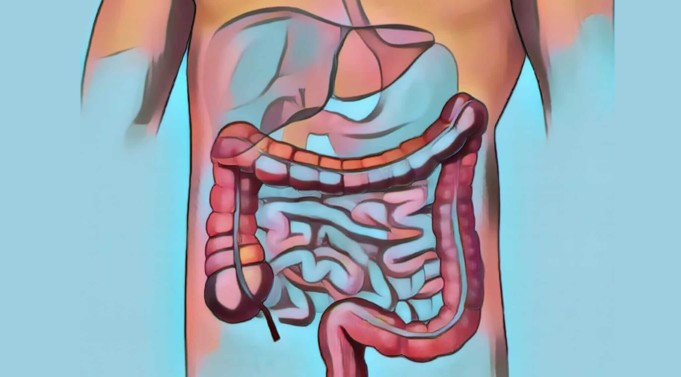Irritable bowel syndrome is not a threatening condition and it can be managed effectively. Good stress management, healthy lifestyles, and healthy nutrition are the keyways to overcome this condition.
Below are some effective natural remedies for IBS and how to use them.
Probiotics
These are healthy bacteria present in our gut, they improve the defense system of the body by fighting harmful bacteria and foreign invaders in the body.
We can get the friendly bacteria from fermented foods and grains, examples of these are yogurt, kefir, and sauerkraut. Probiotics relieve the symptoms of IBS better than drugs and placebo.
It relieves abdominal pains effectively. Increase your intake of probiotic-rich foods and in severe cases you can meet a doctor to prescribe a good supplement for you.
L-glutamine
This supplement helps prevent and treat complications caused by IBS. One of the complications caused by IBS is the disruption of the lining in your small intestines.
When this happens, tiny holes are created in your small intestine making it possible for digestive by-products like lipo-polysaccharides to slip through and enter your bloodstream.
These invading foreigners will trigger the anger of the immune system and it will trigger a general inflammatory reaction and lead to discomforting symptoms such as fatigue and body aches.
If you have IBS and you always feel tired and achy, this supplement will be helpful. It stops this inflammation and relieves all the symptoms of IBS.
It also heals the lining in your gut thereby stopping this permeability problem. Take it according to prescriptions.
Slippery elm
Native Americans have used this herb for hundreds of years for a lot of health problems and it is used mostly in treating digestive problems and calms inflammation. It does this by coating the lining of the intestine.
It adds bulk to stools and eases diarrhea, it also softens stools and relieves constipation. Add 1 or 2 tablespoons of ground slippery elm to a glass of warm water and drink. Do this thrice daily.
Homemade Bone Broth
Bone broth provides your body with a good amount of glycine and Proline, these compounds are used by the body to make collagen. This protein collagen is then used to heal your intestine and repair the permeability.
Prebiotics
These are non-digestible carbohydrates or fiber, they serve as foods for probiotics, the friendly bacteria present in your gut.
This helps to improve the population of these healthy bacteria in your gut, this in turn, increases the ability of your immune system to fight off harmful bacteria and viruses that can trigger infections like gastroenteritis which leads to IBS.
Prebiotics are present in garlic, bananas, onions, raw asparagus, etc.
Artichoke leaf extract
A new study listed artichoke as one of the herbal remedies with a promising effect on IBS. It reduces bowel movement when you are experiencing regular diarrhea and constipation, it returns bowel movement to normal.
This effect is believed to be caused by the presence of cynaropicrin in artichoke. This compound has a strong anti-spasmodic property.
Fiber
Fiber helps in improving the symptoms of IBS, foods rich in fiber are beans, whole grains, fruits, and vegetables.
Aloe vera
The juice of aloe vera is a effective remedy for constipation, one of the commonest symptoms of IBS. People on diabetes medication should be careful of this remedy because it reduces the levels of sugar in the bloodstream.
Take two tablespoons of aloe vera juice two times daily or you add it to your smoothies.
Peppermint oil
This essential oil is one of the most promising herbal remedies for irritable bowel syndrome. It relieves pain and it has a natural anti-spasmodic property.
It effectively relieves abdominal pains but it does not work for diarrhea or constipation. You can inhale peppermint oil or chew peppermint gums.
Chamomile
Chamomile tea helps stop diarrhea and relieves its symptoms. It also relieves inflammation and stops spasms in your gastrointestinal tract.
You can take chamomile tea many times daily. People on a low-FODMAP diet should avoid chamomile.
Digestive enzymes
These supplements are helpful to people who have diarrhea-predominant IBS. Meet a doctor to prescribe a good supplement for you.
Berry leaf
Berry leaf teas made from the leaves of raspberry, blackberry, or blueberries are rich in tannins. This compound decrease inflammation in your gut and reduces the secretion of intestinal fluids.
Take a cup of any of these teas daily to relieve the symptoms.
Reduce stress
Stress might not cause IBS but it surely aggravates its symptoms and prolongs the duration of the illness. Reduce stress or manage it effectively.
Studies showed that the symptoms of IBS cleared when the stress was gone. Try exercise, relax and sleep properly, and meditate. These are effective stress reducing techniques.
Intake of herbal teas like ginger also helps relieve stress. Lavender essential oil relieves stress when inhaled.
Healthy nutrition
You have to get rid of unhealthy foods and eat only healthy and clean foods, this includes organic plant-based foods and grass-fed animals. Eat lots of whole grains, quinoa, black rice, wild rice, oats, and herbs.
Eliminate processed and sugary foods and drinks, avoid artificial sweeteners, trans and saturated fats, fatty meats and foods, pizza, microwaved foods, and margarine.
You can also eliminate conventional diary and dairy products from your food. Keep a food dairy, this will help you track the foods you eat and the symptoms they trigger in your body.
Advisable Diets for IBS Patients
IBS patients are advised to avoid certain foods or reduce the intake of these foods. These include:
Foods that cause gas
Foods that cause gas are bad for IBS patients because gas and bloating are already symptoms of IBS and taking these foods will worsen this symptom and cause a lot of discomfort.
Avoid alcohol, carbonated drinks, and certain fruits and vegetables such as cauliflower, cabbage, broccoli, pears, prunes, apples, etc., they increase bloating and gas.
FODMAPS
Individuals with IBS are sensitive to carbohydrates known as FODMAPs. This includes fructans, lactose, fructose, and others Fermentable oligo-, di-, and monosaccharides, and polyols (FODMAPs).
These types of carbohydrates are common in foods like conventional diary, vegetables (such as mushrooms, cauliflower, Brussel sprouts, asparagus), fruits (such as figs, mangoes, cherries, apples), and grains (such as rye, barley, semolina, spelt, and wheat).
Also avoid sedentary and unhealthy lifestyles like smoking, excessive drinking, and high intake of caffeine.
References;













